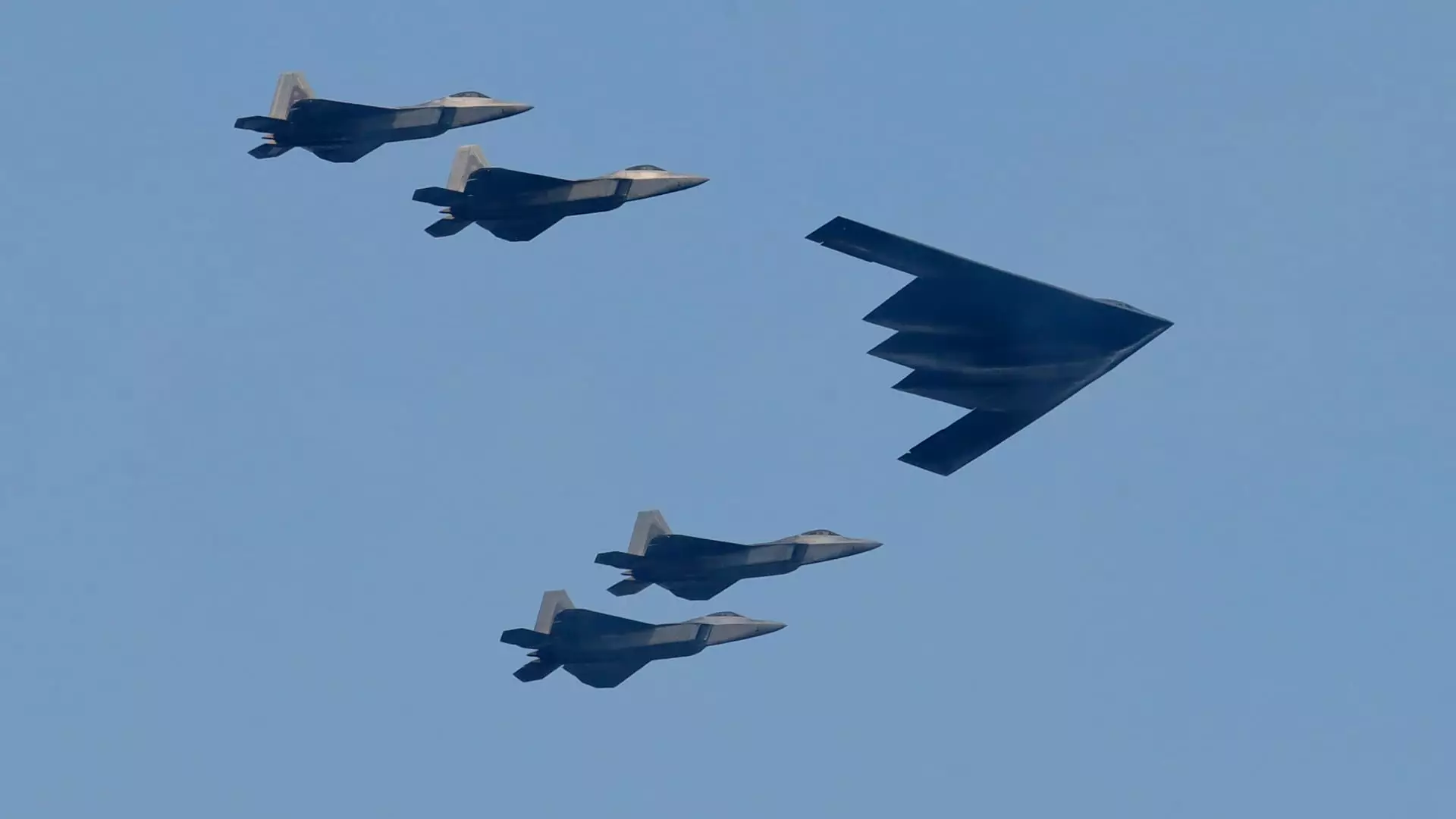When former President Donald Trump declared a “very successful attack” on Iran’s nuclear sites, including the Fordow facility, he claimed it marked an “historic moment” that would steer the course of international relations. But what the world is witnessing may not be a moment of triumph but a perilous leap toward chaos. The reactions from world leaders following this unprecedented military action illustrate a landscape riddled with fear and apprehension. Those who understood the fragile equilibrium in the Middle East realize that any sense of success is tragically misplaced when viewed through the lens of global stability.
Statements from significant figures, like Israeli Prime Minister Benjamin Netanyahu, suggest an enthusiastic endorsement of Trump’s aggression, encapsulating a “peace through strength” mantra. Yet, this phraseology dismisses the complexities of diplomacy and fails to grasp the potential ramifications of such aggressive posturing. To equate military strength with peace disservices a nuanced approach to international relations, which is desperately needed in our times. The cry for strength over dialogue diminishes the prospect of lasting solutions and invites retaliation and escalation, rather than fostering trust and security.
The Voice of Caution
While Netanyahu jubilantly endorsed the strikes, other global leaders were quick to raise alarms. United Nations Secretary-General Antonio Guterres issued an eloquent warning, labeling the U.S. strikes as a “dangerous escalation” that threatens to spiral the region further into chaos. This acknowledgment of potential catastrophe stands in stark opposition to the celebratory rhetoric from Washington and Jerusalem. Guterres’s call for diplomacy reflects an urgent reality; without dialogue, regions caught in conflict remain trapped in a cycle of violence.
Guterres’s remarks should resonate with anyone committed to reasonable discourse in international relations. He aptly noted, “There is no military solution.” Yet, such wisdom seems lost on the architects of this military strike. This pattern of disregarding diplomacy echoes a broader trend that has haunted international relations: where military might is prioritized over peaceful and constructive negotiation.
Global Responses
Leaders from various nations have echoed sentiments of condemnation towards the U.S. actions. Venezuela’s Minister of Foreign Affairs, Yvan Gil, issued a forthright condemnation on Telegram, equating military aggression with threats to global order. The reaction from Cuba’s President Miguel Diaz-Canel echoed similar concerns, underscoring international law violations and raising alarm bells about the potential for irreversible crises stemming from these attacks. The shared tone across regions is not just one of disapproval; there’s palpable fear regarding the implications of U.S. unilateralism.
Countries like Mexico, grounded in pacifism, called for urgent diplomatic dialogue as well. Their message serves as a reminder that many nations are seeking to mend the rifts of conflict rather than exacerbate them. This sentiment contrasts sharply with Trump’s aggressive rhetoric, showcasing a disturbing disconnect in global governance. Leaders worldwide are left grappling with the fallout of a reckless decision that perpetuates an age-old narrative: military power tends to silence diplomatic voices rather than advance peace.
The Illusion of Security
For all the grandstanding about achieving “peace through strength,” the reality remains stark: peace cannot be brokered through the destruction of sovereign nations. The short-sightedness of considering military action as a decisive solution undermines the complexities involved in geopolitical relationships. History has shown us, all too often, that military interventions breed radicalization, resentment, and hostility. This vicious cycle continues unabated, fueled by military strategies that neglect the need for humility and understanding.
As citizens of the global community, we must demand accountability and encourage our political leaders to pursue paths rooted in dialogue and mutual respect. The rhetoric of strength should not drown out the necessity for peace; rather, it should amplify it. When military action is celebrated over diplomacy, humanity teeters closer to the edge of its worst fears, and we are left to weigh the devastating consequences. To hope for a world rooted in security, we must invest not in weapons but in conversations that build bridges rather than walls.


Leave a Reply